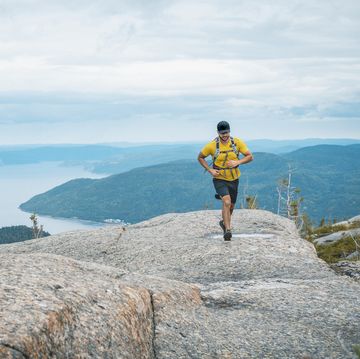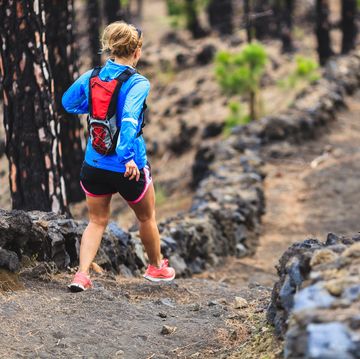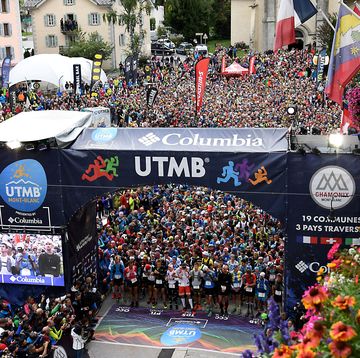Running 100 miles might sound difficult, and that’s because it is – but some people make it even harder than it needs to be. The advice below is going to help you to make the first 80 miles as easy as they can be. (The last 20 you’re on your own, but I believe in you.)
The 100-mile distance is growing in popularity and stature – and the UK has some of the best ones out there. This year, for example, the South Downs Way 100 is part of the Gran Canaria World Trail Majors, which looks to bring together some of the best trail events in the world.
If your race is next weekend or you’re planning on a 100-miler in the future, this advice comes off the back of having run 19 races of 100 miles and helping a huge number of athletes excel at the distance as a coach.
What everyone's reading
Start easy, then go easier
The question of pacing becomes trickier when racing on trails, as an average pace includes uphill, downhill and technical terrain as well. You don’t want to set yourself a min/mile target and then find yourself running next to record-breaking ultramarathon runner Dan Lawson just to keep your Garmin happy.
Take the time to look at results from years gone by and find the people who didn’t die a death after 50 miles. In the first half, people will be running hills that they have to crawl in the final third. You don’t need to speed up in the second half to go past people – just slow down less than those around you and it will feel like you’re on top of the world.
Make sure you’re able to eat, drink and smile comfortably, and if you’re sweating buckets trying to run up a small climb that you won’t be running in 20 miles time, then hike it out. You’ll get to the top 20-30 seconds slower, but that time comes back in spades as the race goes on.
Make eating simple
Everyone knows it’s as much about your packed lunch as it is about the legs underneath you. Having a tried and tested nutrition plan is key to a good 100-mile race, but being able to adapt it is important, too.
As the race goes on, you’ll get tired and feel less and less like eating the next gel, drink mix or bag of sweets. Making your food easily accessible in your race pack or belt means you’re more likely to eat it when you’re fatigued (and need it most). If you have pockets that even a contortionist would struggle with, use them for the items you’re least likely to need and take the food from the trickiest spaces first.
Some ultras have a great range of checkpoint food – the Centurion ones are legendary – but always do your research on your race and test out the products they have beforehand if you can.
Lastly, if you’re 12 hours in, have slowed down and are unable to snack every 20 minutes, don’t give up eating because it’s tough. The race is tough and we keep going, one footstep at a time. Take the same attitude to your food and get through that bar, gel or sandwich one bite at a time.
Don’t stress post-race problems
There’s always plenty to worry about before, during and after race day. But when it comes to your A race, try to put extra focus on the things that will impact your performance and worry a little less about the ‘tomorrow problems’, if you can.
This doesn’t mean you just don’t plan how you’re getting home and hope someone transports you back to London on a magic carpet. But if it’s an either/or situation, then prioritise getting the to start feeling fresh and stress free over having a slightly easier journey home afterwards.
If you have to choose between booking a hotel at the start or the finish, go for the start. While it might be nice to collapse into a bed post-race, it won’t impact your time. On the other hand, a long drive pre-race to the start could mean you lose out on a potential 90 minutes of sleep.
Last but not least, hope for a tailwind. This one might only be relevant for point-to-point races, but it’ll certainly make the 100 miles a bit easier.
The South Downs Way 100 begins on Saturday 8 June. Watch the action live at centurionrunning.com/live













